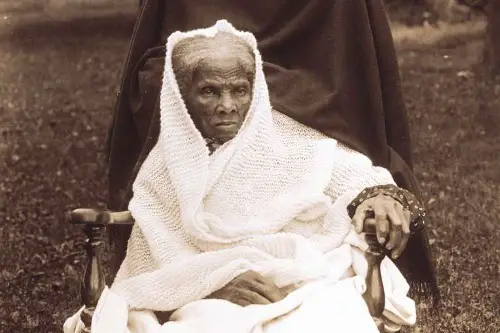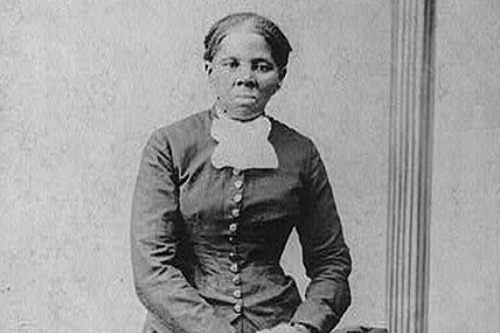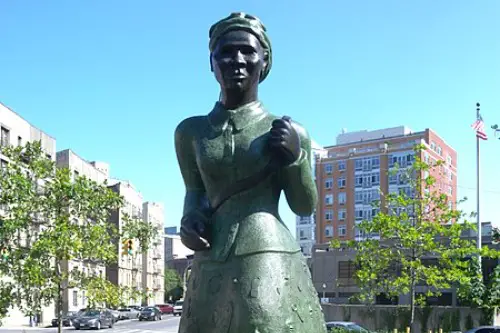Harriet Tubman’s name is a beacon of courage, resilience, and unwavering dedication to the fight for freedom. While she is widely celebrated for her heroic work with the Underground Railroad, Tubman’s life and contributions go far beyond that. She wasn’t just a conductor of runaway slaves; she was a soldier, a spy, and the savior of hundreds. In her lifetime, she moved through the shadows, guiding those who sought freedom, and worked as a vital force in the Civil War to bring about the end of slavery. Let’s take a closer look at how Harriet Tubman became a woman who wore many hats, each one more daring than the last.
A Soldier in the Fight for Freedom

When we think of Harriet Tubman, most of us immediately picture her sneaking through the night, helping enslaved people escape to freedom. But Tubman’s role in the battle for freedom didn’t end with the Underground Railroad. She was also an active participant in the Civil War, where she went from a freedom fighter to a soldier in a conflict that would ultimately define the future of America.
In 1863, during the Civil War, Tubman became the first woman to lead an armed expedition in the war. She was recruited by Union forces, and her knowledge of the land in the South, particularly Maryland, became invaluable. Tubman led a group of Union soldiers through the Combahee River Raid, a mission that freed over 750 enslaved people. She didn’t just guide the troops to the right location, either. Tubman was in the thick of it, offering intelligence and acting as a nurse, caring for the wounded and the sick, all while leading with bravery and tactical brilliance.
While her military service is often overshadowed by her work with the Underground Railroad, her role in this military operation speaks to her fierce commitment to the cause. She wasn’t just a symbol of freedom; she was a woman who actively contributed to the tangible fight against slavery and the Confederacy.
Spying for the Union

What’s remarkable about Tubman is that her courage wasn’t confined to just one battlefield. In addition to her work as a soldier, she became a spy for the Union army. Her unique position as an African American woman who had once lived as a slave meant that she had the ability to blend in, gather intelligence, and move undetected in ways that many of her counterparts could not.
During the war, she worked closely with Colonel James Montgomery, a commander in the Union army, using her skills to infiltrate enemy territory and gather valuable information. Tubman’s knowledge of the Southern geography, along with her understanding of enslaved communities, made her an invaluable asset to the Union forces. Her most notable espionage mission came in 1863 when she traveled deep into Confederate territory, disguised as a poor farm woman. She was able to gather critical intelligence about Confederate troops, their strategies, and their weaknesses.
What stands out about her work as a spy is the ingenuity and bravery she displayed in these secretive missions. Tubman didn’t rely on conventional methods; she used her own ingenuity and intimate knowledge of the land and people. She was a trailblazer, using espionage to create strategic advantages that played a role in Union victories. In fact, her information helped the Union forces sabotage key Confederate supply lines and deliver decisive blows during key battles.
The Savior of Hundreds

While Tubman’s work as a soldier and spy is significant, it’s her role as a savior—particularly through the Underground Railroad—that is most iconic. But even within this sphere, her impact is so much more than a series of well-timed rescues. Harriet Tubman didn’t just save hundreds of lives; she changed the very fabric of what it meant to fight for freedom.
Born into slavery in 1822 in Maryland, Tubman faced unimaginable hardships. From a young age, she endured physical abuse, harsh conditions, and separation from her family. Despite the overwhelming odds, she found a way to escape in 1849, slipping away in the dead of night to Philadelphia, where she found freedom. But rather than staying in her newfound freedom, Tubman returned—repeatedly—to lead others to safety. Over the course of 13 trips, she personally rescued over 70 enslaved individuals, risking her own life each time.
Her work wasn’t just about finding the right route or getting people across state lines. She became a symbol of hope to those who had lived in bondage, showing them that freedom was possible, even if it meant taking risks. Tubman’s leadership was something that went beyond a mere rescue mission; she was a guide, a protector, and a source of strength for those seeking liberation. The way she navigated the South’s dangerous terrain, often evading bounty hunters, is legendary. Her courage wasn’t simply in the physical journey, but in the emotional toll it took to lead others to freedom.
What’s often overlooked, though, is how Tubman managed to save so many lives despite constant threats. She knew the stakes. Her journey was fraught with danger, but Tubman possessed an incredible ability to remain calm under pressure, motivating those around her to keep going even when the odds seemed insurmountable. She famously said, “I never ran my train off the track, and I never lost a passenger.” This quiet confidence and unyielding determination to save others made her not just a conductor of the Underground Railroad, but a living legend.
But her work didn’t stop once the Civil War broke out. Tubman became an important figure in the war effort, using her experience to continue to fight for those who needed it most. After all, while she had helped to lead many to freedom, the war itself was the final stage of that battle. Slavery would only end once the Confederacy was defeated, and Tubman knew that every life saved was a step closer to freedom for all.
Harriet Tubman is an icon whose story should never be told in isolation. She didn’t just perform a single act of bravery and call it a day. She spent her life on the frontlines—whether as a soldier, a spy, or a conductor of the Underground Railroad—fighting for the freedom of others. Her determination to free the enslaved didn’t waver, and she did so with such selflessness and unshakable belief in the power of freedom that her story has lived on for generations.
Tubman may have been a woman of few words, but her actions spoke volumes. Through her work, she made an indelible mark on history, and her legacy continues to inspire those who fight for justice and equality today. Whether on the battlefield or on the Underground Railroad, Harriet Tubman’s contributions were nothing short of extraordinary. She was a soldier, a spy, and above all, a savior—a title she earned through her boundless courage and love for humanity.
